PHUKET: Indonesia is interceding in Burma as the Asean partners desperately try to stem international damage from years of Asean subterfuge and inaction on the Rohingya issue.
Dr Surin Pitsuwan, who has just retired after five years as Secretary General of the 10-nation group, told Phuketwan today that human rights in Burma was an issue that had to be addressed.
Since the pushbacks from Thailand were exposed in 2009, the word ''Rohingya'' has reverberated around the region.
The covert pushbacks were Thailand's way of dealing with an issue that Burma and its neighbors wanted to hide from the word.
In 2013, with satellite images being used by activist group Human Rights Watch as evidence of the torching of thousands of Rohingya homes in Burma's Rakhine state, secrets are more difficult to keep.
Thousands more Rohingya are opting to make the perilous voyage south rather than ''die in a camp for displaced people,'' as one boatperson put it.
Now that their homes have been burned, the women and children are fleeing Burma with their menfolk in a crisis generated by decades of resentment that has openly festered lately into bitter hatred.
The pushbacks were adopted by Thailand as an answer after the 2007-2008 ''sailing season'' saw nearly 5000 Rohingya land in Thailand.
Halfway through the 2012-2013 ''sailing season,'' more than 10,000 Rohingya have voyaged past Thailand and thousands more are planning to flee the same way.
Since Phuketwan revealed on January 1 that women and children are now fleeing in the boats, a policy swing appears to be underway in Thailand.
The prospect of women and children being at sea for weeks in open boats alarmed the Thai Navy personnel and local police who intercepted the boatload of families off Phuket.
It can be no coincidence that last night's raid took place on an illicit Thai-Malaysia border camp for the first time, clearly revealing that children and women are now falling into the hands of the people traffickers.
We sincerely hope that for Asean and the people smugglers, the days of secrecy and profit are at an end.
With the illegal trade now on overload, alternatives have to be found, and urgently. There is no doubt that the only permanent solution has to come from inside Burma.
Dr Surin acknowledged this today when he said that he believed steps had to be taken swiftly to recognise Rohingya families who had been living in Burma for generations.
Being a just-retired diplomat, he said that the process of recognition required time.
But with more women and children taking to the Rohingya boats each day, time is running short. Burma must act.

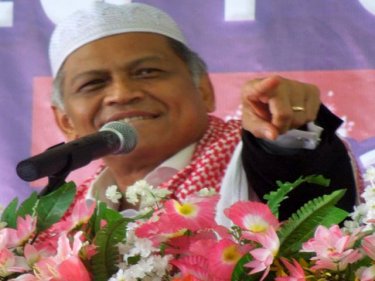

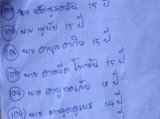
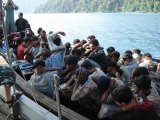
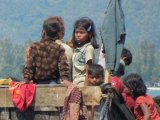




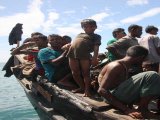
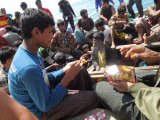

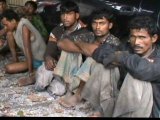

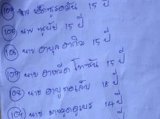
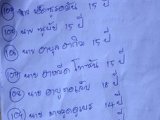

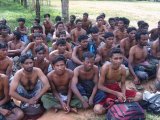




Bengalis from Bangladesh have been migrating illegally to neighbouring countries because of overpopulation (over 150 million) and scarcity of resources. As far back as 1975, the then Bangladesh Ambassador to Myanmar Khwaja Mohammed Kaiser admitted that "there were upward of 1/2 million Bangalee (Bangladeshi) trespassers in Arakan (Rakhine state) whom the Burmese (Myanmar) had some right to eject. He had implored the Burmese authorities not to press this issue during Bangladesh's present troubles [COUP of August and November 1975] and had been pleased that the Burmese had not taken advantage of his country's misfortune in this respect. CNN news media have recently published numerous reports of Bengalis illegally migrating eastwards by sea and land. Refer to CNN report of Nov 1, 2012, and Khabar South Asia of Dec 24, 2012. Once they cross the border, they identify themselves as Rohingya to gain international sympathy. Bangladesh newspaper UNBConnect of Nov 21, 2012 admitted that Bangladeshis are camouflaging themselves as Rohingya. In addition, approximately 12 million to 17 million Bangladeshi immigrants have come to India illegally since the 1950s.
Posted by Ray on January 11, 2013 01:56
Editor Comment:
Burma should grant citizenship to all Rohingya whose parents were born there. Simple.